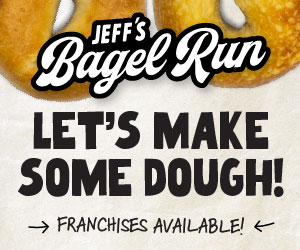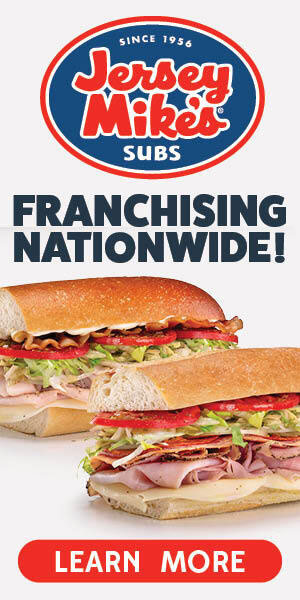Kahala Corp. moves fast. When we first spoke with Chris Prasifka in late March, he was executive vice president to the CEO. Two weeks later he was president of Kahala Franchise Corp.--and charged with leading the franchisor and its 13 brands from 4,600 units to 10,000 units by the end of 2010 (an average of 170 units every month for 32 months).
- Eddy Goldberg
- 5,488 Reads 133 Shares
What a great time to be in the franchise development business! We have the advantage of an election year, talk of recession, high interest rates, poor housing starts, and rising unemployment rates.
- Marc Kiekenapp
- 3,386 Reads 31 Shares
At PuroSystems, the vice president of franchise development has an advantage his peers would envy--if they knew it existed: he can listen in live on a franchise sales call, privately offering advice and feedback to his salesperson as the discussion unfolds.
- John Carroll
- 3,552 Reads 37 Shares
Running a racquet and health club is a time-consuming business and one that Bruce Forsythe knew quite a bit about. He'd been running one with his partners in Long Island, N.Y. for about 14 years when the team decided to turn one of their former tennis court areas into a second -- and different -- business endeavor.
- Kerry Pipes
- 2,678 Reads 58 Shares
For America's Top Franchisors, Search Delivers Exponential Growth Opportunities. Are the Top Contenders Capitalizing?
- Oneupweb®
- 8,271 Reads
The past decade saw an acceptance by the Romanian market of the Western concepts of doing business, a new perception of the value of brands and the creation of an entirely new market - the one for franchisers. Seven years have passed since Romania enacted a franchise law. During this period, the market has evolved, and the pioneering period in franchising during which major companies entered the market only for market testing - first performing distribution operations (Coca Cola) or establishing a subsidiary (McDonald's) and only afterwards developing their franchise concepts - has come to an end. Indeed, 60 of the 107 franchises currently operating in Romania have been established during the last two years.
- Roxana Negutu
- 6,329 Reads 1 Shares
When Lino DeFeo bought a Sign-A-Rama franchise in West Palm Beach, Fla., he didn't know much about signs. That was about 15 years ago. DeFeo had sold his trucking business in Manhattan and moved to Florida with his wife Maria and their two young children to join a family business. But that didn't work out exactly as planned. "I got out before we totally killed each other," he says with a laugh.
- Eddy Goldberg
- 9,520 Reads 1,014 Shares
Motherhood is one of the toughest jobs in the world - just ask any mom. It's often thankless, seems endless, and certainly lacks much worldly prestige. Life for mom can be even more challenging if she desires to work outside the home to boot. There are, after all, limited choices beyond the full-time job and requisite daycare for the kids. In a month where we stop for a day (May 11) to recognize all that mom does, it's interesting to note that more and more moms are finding a place at home and in franchising. Moms like Liz Norwood in Denver, Colo.
- Kerry Pipes
- 3,368 Reads
Elaine Stroman was making great money. She had spent the better part of two decades working as a mortgage banking consultant helping people buy and renovate brownstones in old New York City neighborhoods such as Harlem. She worked on 100 percent commission and was completely in charge of every penny she earned.
- Kerry Pipes
- 2,136 Reads 5 Shares
Mike Ghaida lives in a million-dollar house in a quiet suburb in New Jersey with his wife and three sons, and $300,000 worth of cars in his driveway. It wasn't always this way for the 41-year-old Ghaida, who came to the U.S. from Lebanon at 17 to study English and architecture at LSU.
- Eddy Goldberg
- 22,989 Reads 355 Shares
According to the U.S. Administration on Aging, by 2030 the number of Americans aged 65 and older will more than double to 71 million, that's roughly 20 percent of the U.S. population. In some states, as much as a quarter of the population will be aged 65 and older.
- Kerry Pipes
- 4,235 Reads 1,014 Shares
Bill Dalton owned eight Grease Monkey franchises in the Seattle metro area. Today he owns one--a five-month-old, state-of-the-art facility in his home of Montgomery, Texas.
- Eddy Goldberg
- 5,594 Reads 1,014 Shares
The former Soviet Union was a frightening frontier for expanding businesses in the early- to mid-1990s. The former communist country was experiencing growing pains as it left behind decades of closed existence and began embracing a new economy built around more of a free market-based environment. And it was just this setting that Jake Weinstock and Paul Kuebler dived into headfirst.
- Kerry Pipes
- 8,110 Reads 1,014 Shares
Even 10,000-unit gorillas have an Achilles' heel. For Curves, the number-one women's fitness and weight loss franchise, its own success is now biting it in the ankle. Competitors of all sizes and shapes have sprung up, offering women an ever-increasing array of options for losing weight and staying fit.
- Eddy Goldberg
- 3,399 Reads 117 Shares
It's fitting that Guillermo Perales does business in the state of Texas--a place where things are known for being large. Fitting because Perales heads the largest Hispanic-operated multiunit franchise company in the U.S., with more than 140 units across five brands. And he's looking to expand.
- Area Developer Magazine
- 9,657 Reads 3 Shares
In today's business environment, the mystery shopper - the person who pretends to be a customer or potential client while noting every conceivable plus and minus of their shopping or consumer experience - is a fact of life.
- Debbie Selinsky
- 4,024 Reads 19 Shares
Brian Wigutow had always dreamed of operating his own restaurant. But after more than a dozen years in the industry he realized that for him -- and his family, which includes three young daughters -- it was just not going to be the right career choice. That's when he turned to a franchise broker and discovered, to his surprise, one of the franchise matches that best suited him…Handyman Matters.
- Kerry Pipes
- 2,732 Reads
Five careers. That's how 65-year-old Charles Smithgall, III, categorizes his business life. And that's not even including his service in the military. Or rustling cattle on Canadian ranches as a young man in the late 1960s.
- Area Developer Magazine
- 6,077 Reads 1 Shares
Earlier this year, a franchise magazine that shall remain nameless here focused upon the issue of "cleavage in the marketplace" - a subject no man in his right mind would ever touch. However, I found it interesting that this subject had garnered discussion in one of the leading publications on franchising, or for that matter, in any reputable publication.
- Rupert M. Barkoff
- 3,464 Reads 1 Shares
Most people would trade their day job anytime for Bob Stucker's problem a few years back: "I retired too young."
- Kerry Pipes & Eddy Goldberg
- 5,040 Reads 11 Shares
"I don't care about numbers and notes on a piece of paper; it only matters if you actually close the sale."
- Kerry Pipes
- 3,445 Reads 5 Shares
Becoming a "Mega Franchisee" is a high-risk, high-reward endeavor. For a third year, Area Developer has measured and highlighted those franchisees bold enough, smart enough - and fortunate enough - to succeed in the rapidly growing and lucrative market of multiunit and multi-concept development.
- Kerry Pipes & Eddy Goldberg
- 5,699 Reads 1,023 Shares
Financing is the lifeblood of expansion for franchisors and multiunit owners alike. Whether for advertising and marketing to sell additional franchises, or whether to remodel or build more company stores, without financing there is no growth and development. And, despite the rapid growth of new concepts and new units in the aftermath of the dot.com crash in 2000 and 2001, many forecasts of the economic climate and its effect on business growth in 2008 range from gloomy to dim--especially when it comes to credit and lending.
- Eddy Goldberg
- 3,705 Reads 1,014 Shares
What was once a humble grassroots movement to "Save the Planet" has now become big business, with consumers a major part of the push. Seems everywhere you look these days, more and more companies are touting their "green" initiatives as they scramble to implement various ways to recycle, reuse, and renew. Green is in.
- Kerry Pipes
- 5,307 Reads 7 Shares
My first entry into the franchise business was in 1986 when I acquired 24 Dairy Queen restaurants in Texas. In less than a year, I was up to 55 stores and had become one of the largest franchisees in the entire Dairy Queen system. I had more credit than sense.
- Bill Hall
- 3,606 Reads 3 Shares
Franchise UPDATE recently sat in on a seminar for aspiring franchisees. One of about 150 such events held each year in the U.S. held by Francorp Consulting, this session was led by veteran industry consultant Don Boroian, who founded Francorp 31 years ago.
- Eddy Goldberg
- 13,264 Reads 1 Shares
Conventional wisdom would say the best franchise operators are individuals with past business experience - or even better, previous franchising experience. But that may not be the case any longer. A youth movement is under way in the world of multiunit franchising.
- Kerry Pipes
- 6,170 Reads 98 Shares
Season's Greetings! As we all wind down the old year and ring in the new, franchising.com has a New Year's resolution of our own for 2008: to be your premier franchising resource. Not only for the analysis and profiles we've brought you over the years, but also for the timely news and events you need to keep informed of the most current, up-to-the-minute developments in the world of franchising.
- Eddy Goldberg
- 2,100 Reads 2 Shares
In an ideal universe, companies grow and achieve vital corporate initiatives through ever-increasing cash flow. But the reality for most franchisors, public or private, is that expansions and capital expenditures require an infusion of cash.
- Jeff Stone
- 3,263 Reads 6 Shares
A really hard job for any franchise company's tech department is coordinating all the different systems in franchisee locations. As everyone gets more and more dependent on standardized machines and programs, it's easy to think that the basics are taken care of.
- Ripley Hotch
- 3,239 Reads 5 Shares
| Page 262 of 277 | ^ Return to Top | Previous 260 261 262 263 264 Next |
| ADVERTISE | SPONSORED CONTENT |
FRANCHISE TOPICS
- Multi-Unit Franchising
- Get Started in Franchising
- Franchise Growth
- Franchise Operations
- Open New Units
- Franchise Leadership
- Franchise Marketing
- Technology
- Franchise Law
- Franchise Awards
- Franchise Rankings
- Franchise Trends
- Franchise Development
- Featured Franchise Stories
Subscribe
| ADVERTISE | SPONSORED CONTENT |




 The franchise opportunities listed above are not related to or endorsed by Franchising.com or Franchise Update Media Group. We are not engaged in, supporting, or endorsing any specific franchise, business opportunity, company or individual. No statement in this site is to be construed as a recommendation. We encourage prospective franchise buyers to perform extensive due diligence when considering a franchise opportunity.
The franchise opportunities listed above are not related to or endorsed by Franchising.com or Franchise Update Media Group. We are not engaged in, supporting, or endorsing any specific franchise, business opportunity, company or individual. No statement in this site is to be construed as a recommendation. We encourage prospective franchise buyers to perform extensive due diligence when considering a franchise opportunity.